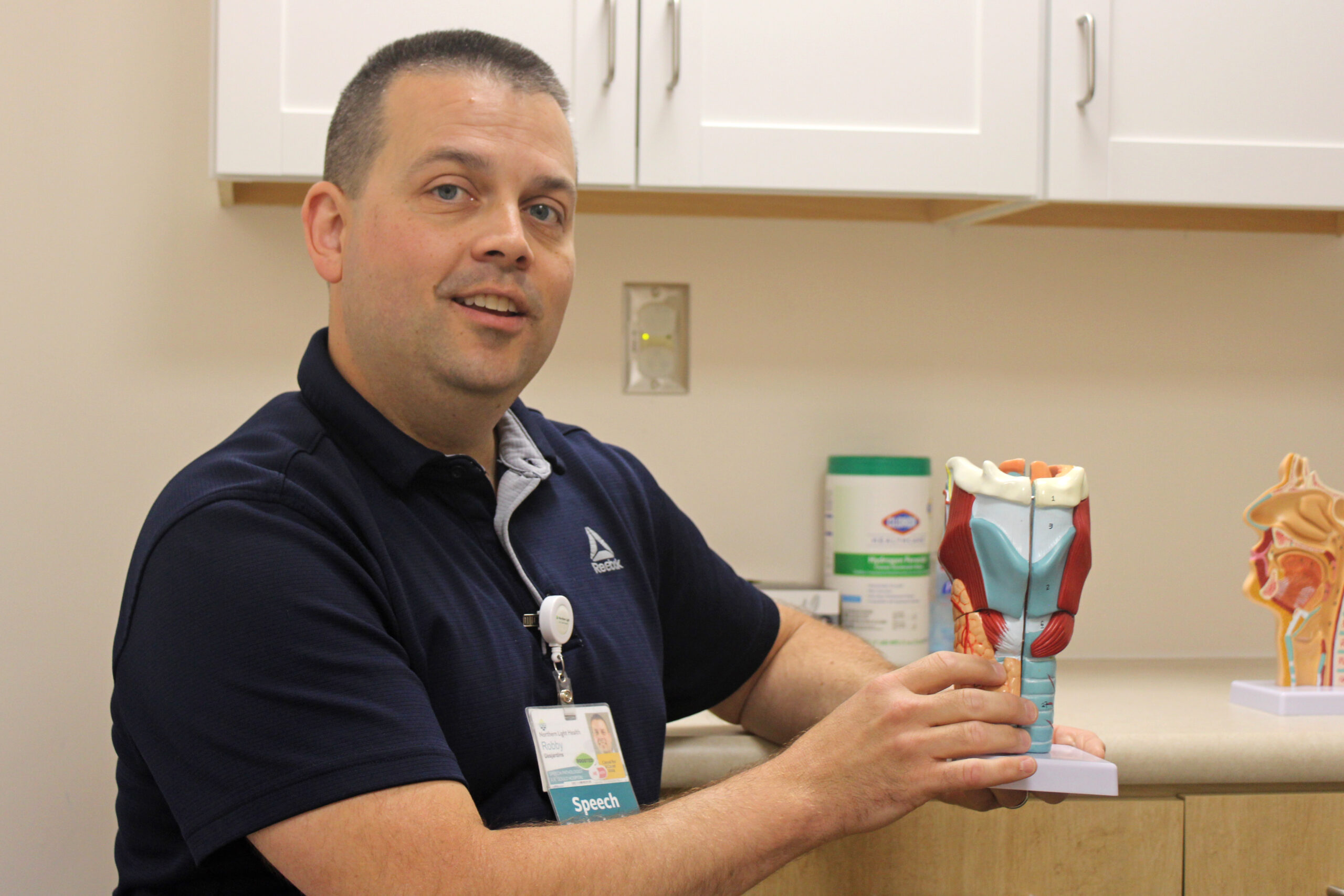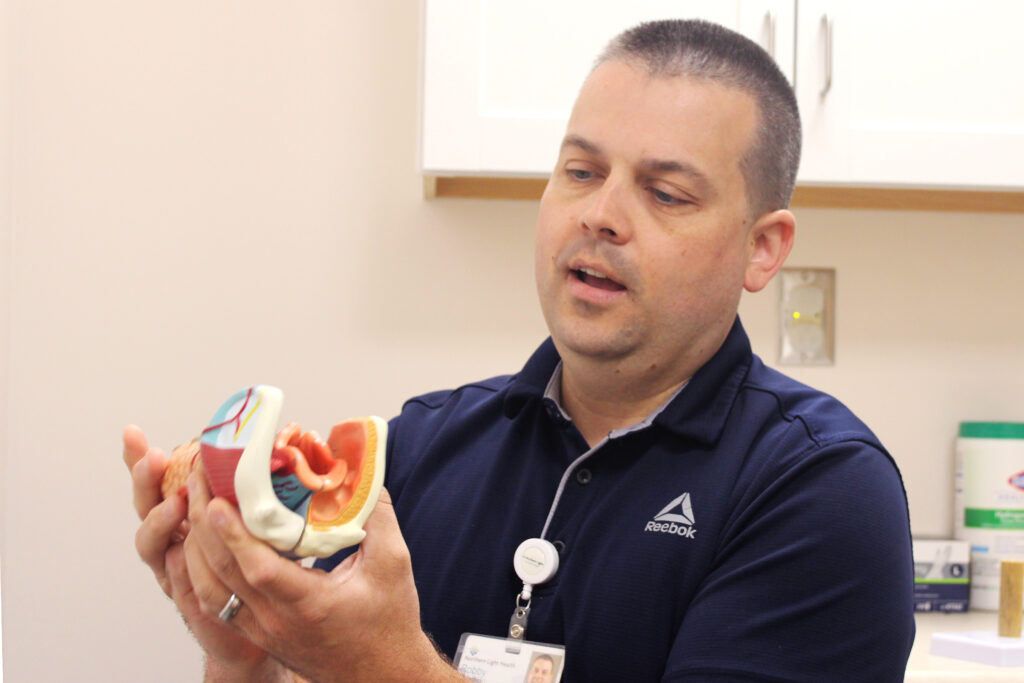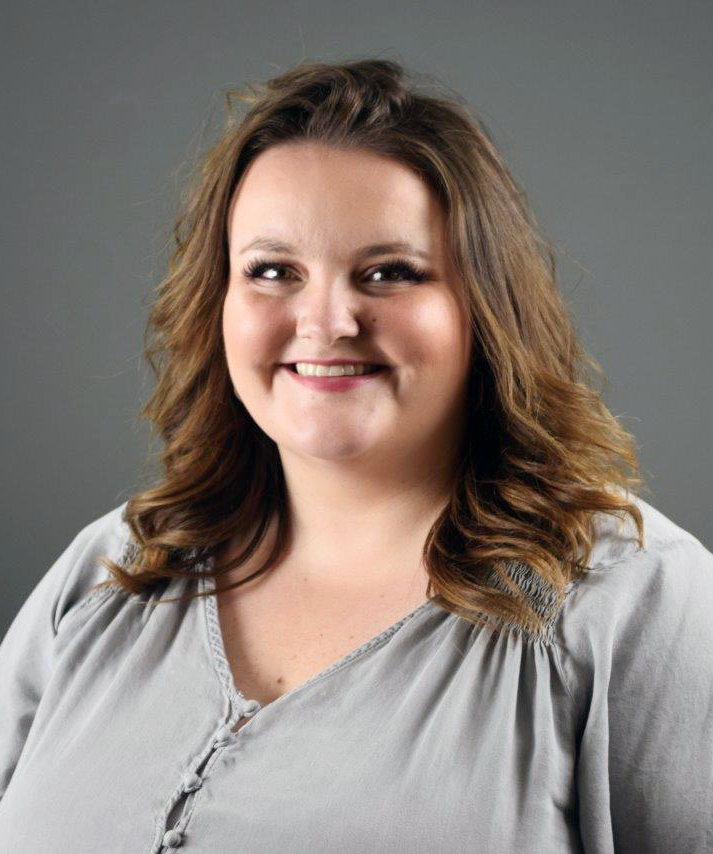
In a small office at Northern Light A.R. Gould Hospital in Presque Isle, people are learning new ways of speaking to match their gender identities.
Speech language pathologist Robby Desjardins leads clients, many of whom are transgender, on a complex and sometimes emotional journey to retrain their voices.
Gender-affirming voice therapy helps people express themselves more authentically, but can also keep other people from misidentifying their gender — which Johns Hopkins calls “misgendering.” Desjardins’ program is a first for Aroostook County and one of just a few in Maine, and his growing client list spans the state.
When people can project outwardly who they are inside, it builds confidence and improves their lives, he said.
“It’s less stigmatized to have your voice match your identity. Up here, a lot of it has to do with safety in the community,” Desjardins said. “People still have some very harsh thoughts about the trans community. So it’s more than just an identity thing; it’s a safety thing and it’s a quality-of-life thing.”

The therapy has been around for about 20 years, but not many people practice it in Maine, Desjardins said. He came to A.R. Gould in 2019 and launched the program in 2020.
A 2022 study estimated there are 5,900 transgender adults and 1,200 transgender youth in Maine, according to the Maine Center for Economic Policy.
The Scarborough NeuroDevelopment Center offers transgender voice therapy. Augusta-based Maine Family Planning offers transgender health care but not vocal training, and in fact refers many patients to the Presque Isle program, Desjardins said.
Demand has grown so much that speech language therapist Jada Kuhn has joined the team. The two see full slates of patients both in Presque Isle and from all over Maine via telehealth.
Certain speech patterns are generally masculine or feminine, Desjardins said. Typically, males speak in a sharper, staccato manner with shorter syllables, while women tend to draw out syllables and employ softer tones that rise and fall.
Different clients have different needs. A woman changing gender may wish to cultivate a deeper voice with more bass and a more monotone pattern. Someone who is nonbinary may want a speaking pattern that isn’t either male or female.
Others may want a different voice for certain circumstances, he said. For instance, someone may want to reflect their previous gender to talk with their children, who knew them before their gender change.
Desjardins works with a client to set goals, then develops exercises for different physical attributes, like resonance, articulation, pitch and intonation. He also works with nonverbal communication, which includes laughing and coughing.
A more masculine speaker’s voice might resonate more from the back of the throat, giving a deeper sound, while a feminine speaker could project more from the front part of the mouth, making a lighter sound, he said.
“We’re training people to make their instruments smaller if they want a lighter voice and bigger for a deeper voice,” Desjardins said. “We can’t change someone’s physical body, but we can change how they use the muscles.”

The therapy takes commitment. Treatment includes roughly 20 sessions and a lot of patience and practice, he said. He incorporates games and fun scenarios to make things enjoyable, and even smartphone apps for voice training. But if people aren’t willing to put in the work between sessions, they’re not as successful.
For patient Kiradwen Libby, the results have been transformative. She works in customer service, dealing with people over the phone, and was nearly always misgendered. She sought help from the therapy team.
It was a lot of work, but well worth the effort, she said. With guidance and the exercises she worked on, it’s now rare that someone mistakes her gender. She credits Desjardins’ program with her success.
“He honestly cares about us as individuals and wants to help equip us with the tools we need to accomplish our goals of having our voices sound more authentic to our gender,” Libby said.
She recently started working with Kuhn, also, and said Kuhn has gone outside the box to find helpful exercises for her.
Counseling and helping patients over hurdles is a big part of the process, Desjardins said.
It’s not always easy. Patients often have a lot to work through, whether it be from the difficulties of changing gender, family issues or even homelessness. Trans folk can struggle to find work, since some employers are hesitant to hire people outside of a gender norm, he said.
Success comes when people can go about their daily lives and be recognized as the gender they choose. Though he thoroughly enjoys the work, Desjardins especially likes helping people be true to themselves.
“The most rewarding part is when somebody tells me that they’ve been able to make a phone call and they’ve not been misgendered, they’ve not been ridiculed or given a strange look,” he said. “I want people to smile and feel good about what they’re saying and how they’re saying it.”
This story was updated to remove an incorrect reference to Portland as the location of Maine Family Planning.







